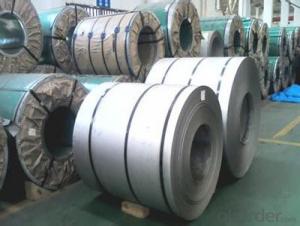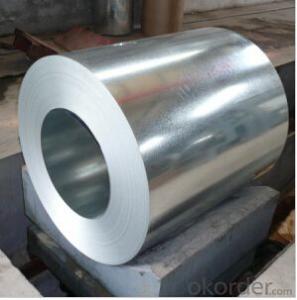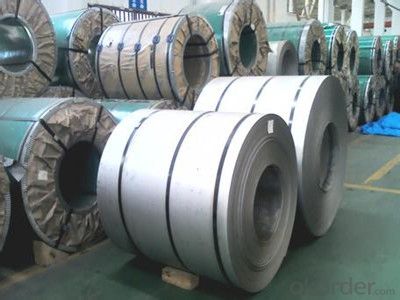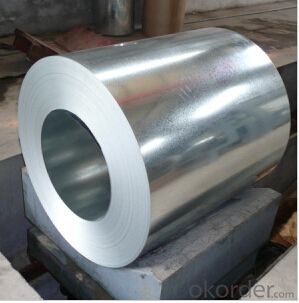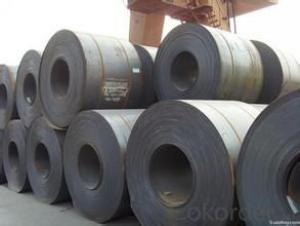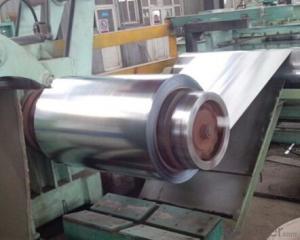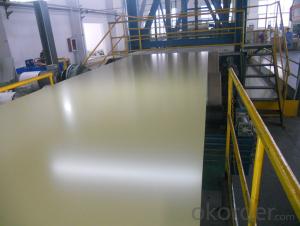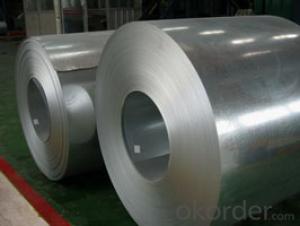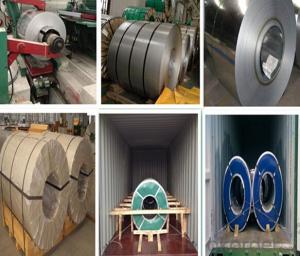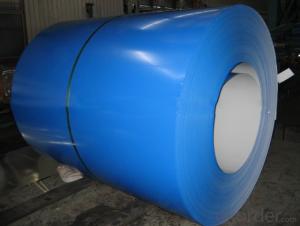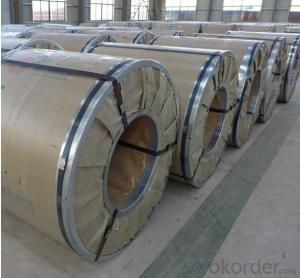Galvanized Steel Coils/Plate SGCC Gi Gx51d
- Loading Port:
- Tianjin
- Payment Terms:
- TT OR LC
- Min Order Qty:
- 50 m.t.
- Supply Capability:
- 10000 m.t./month
OKorder Service Pledge
OKorder Financial Service
You Might Also Like
Specification
Product Details
Basic Info.
Type:Steel Plate
Standard:ASTM, AISI, GB, JIS, DIN, BS
Certification:ISO, SGS, BV, RoHS, IBR
Surface Treatment:Galvalume
Technique:Hot Rolled & Cold Rolled
Application:Ship Plate, Boiler Plate, Container Plate, Flange Plate
Special Use:Carbon Steel
Stock:Not Stock
Thick:0.12-4.0mm
Width:600-1250mm
Zinc Coating:Az50-Az150G/M2
Material:Dx51d,Dx52D,G350-G550
Surface:Anti-Fingerprint,Minimumed Spangle ,Bright , Oiled
Export Markets:Global
Additional Info.
Trademark:Sino Steel
Packing:Properly Packed for Ocean Freight Exportation
Standard:SGS, ISO9001
Origin:Shandong
HS Code:721061000
Production Capacity:350000 Tons/Year.
Product Description
Hot Dipped 55% Aluminum Zinc Alloy Coated Steel by the Hot-Dip Process
Hot Dip Galvalume steel coil EN 10327 JIS G3321, ASTM A792M 55% AL-ZN coated
Specification:
| Commodity | AZ150 AFP G550 Galvalume steel coil with SGS certification |
| Technical Standard: | JIS,GB,DIN,BS,ASTM |
| Grade | DX51D / DX52D/ DX53D/G300/G550 |
| Types: | Commercial / Drawing / Deep Drawing / Structural quality |
| Width | 500/650/726/820/914/1000/1200/1219/1220/1250mm |
| Thickness | 0.12-4mm |
| Type of coating: | aluminum-zinc alloy |
| Zinc coating | AZ50-AZ150 55% Al, 43.5%Zn, 1.5%Si. |
| Surface treatment | Pre-painted/ skin pass/ oiled/slightly oiled/unoiled/ dry/ anti-fingerprint/Non anti-fingerprint |
| Surface structure: | minimized spangle / regular spangle |
| ID coil | 508mm or 610mm |
| Coil weight | 3-8 MT per coil/ sheet will be cut as clients's requirments |
| Package: | Properly packed for ocean freight exportation in 20''containers |
| Application: | Industrial panels, roofing and siding for painting |
| Price terms | FOB,CFR,CIF,CNF,DAP,etc |
| Payment terms | 30%TT deposit in advance +70% TT balance against copy of B/L or irrevocable 70% L/C at sight |
| delivery time | Within 25 work days after deposit received. |
| Remarks | Insurance is all risks |
| MTC will be handed on with shipping documents | |
| Third party inspection such as SGS supported |
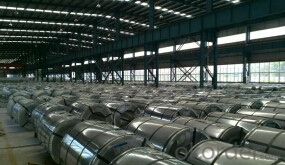
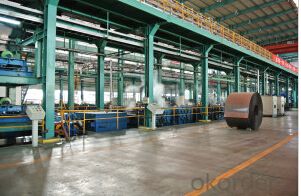
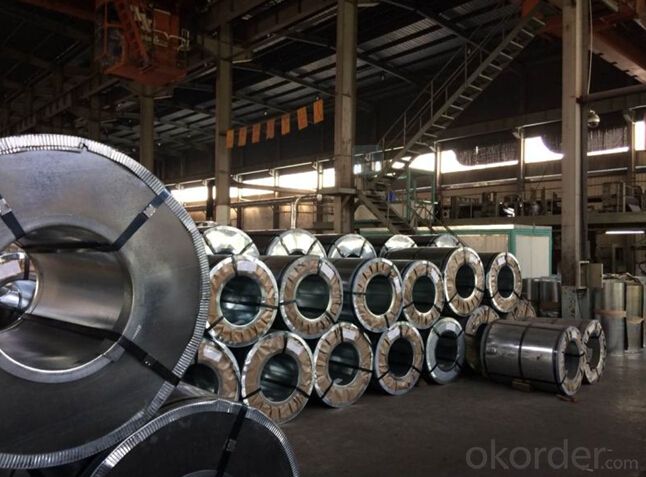
FAQ
1.What's your MOQ?
25MT, it is for one container.
2.Do you have QC teams?
Yeah, sure, our QC team is very important, they will keep the quality control for our products.
3. What's your normal delivery time?
Our delivery time about 10-20days for standard sizes, if you have other requirements like hardness and width ,it is about 20-40days. But don't worry ,we also try our best for the delivery time ,because time longer and our cost is higher.
4.Are the products tested before shipping?
Yes, all of our PPGI and GI was qualified before shipping. We test every batch every day.
- Q: That's my question, well that and:Steel Pick + Electric Guitar = Trashed Guitar?:D
- A steel pick + acoustic on nylon strings = not so good A steel pick + acoustic on steel strings = this might work A steel pick on electric guitar = this might work too I don't think you would trash the guitars, and you probably wouldn't have to worry about being electrocuted...lol... A plastic pick would be so much better. Do they even make steel picks ?
- Q: What are the different methods of slitting steel coils?
- There are several different methods of slitting steel coils, each with its own advantages and limitations. Some of the most common methods include: 1. Rotary Shear Slitting: This method involves using rotating knives to cut the steel coil into narrower strips. It is a versatile and efficient method that allows for high-speed production and precise slitting. Rotary shear slitting is commonly used for thinner gauge materials. 2. Looping Pit Slitting: In this method, the steel coil passes through a looping pit where it is guided and tensioned before being slit. It is suitable for thicker gauge materials and provides good edge quality. Looping pit slitting allows for higher coil speeds and can handle heavier coils. 3. Drag Slitting: This method involves dragging the steel coil over a stationary blade or set of blades to perform the slitting. It is particularly useful for materials that are difficult to slit, such as high-strength steels. Drag slitting provides excellent edge quality and is often used for precision slitting applications. 4. Crush Slitting: Crush slitting involves applying pressure to the steel coil to crush and separate it into narrower strips. It is a cost-effective method suitable for lower gauge materials. However, it may result in slightly rougher edge quality compared to other methods. 5. Laser Slitting: Laser slitting utilizes a focused laser beam to cut through the steel coil. It is a highly precise method that offers excellent edge quality and minimal distortion. Laser slitting is commonly used for high-value and specialty materials. Each method has its own advantages and is suitable for specific applications and material types. The choice of slitting method depends on factors such as material thickness, desired edge quality, production speed requirements, and budget.
- Q: How do steel coils contribute to energy efficiency in appliances?
- There are several ways in which steel coils enhance energy efficiency in appliances. First and foremost, steel coils are extensively utilized in the heat exchangers of appliances like refrigerators, air conditioners, and water heaters. These coils effectively transfer heat, enabling appliances to cool or heat the desired space using less energy. By maximizing heat transfer, steel coils aid appliances in reaching the desired temperature faster and maintaining it with minimal energy consumption. Additionally, steel coils are commonly employed in the heating elements of appliances such as stoves and ovens. These coils directly provide heat for cooking or baking food. Steel's exceptional thermal conductivity ensures the even distribution of heat, reducing both cooking time and energy usage. This enables appliances to operate more efficiently, resulting in time and energy savings. Moreover, the durability and longevity of steel coils contribute to energy efficiency in appliances. Appliances equipped with steel coils are designed to withstand high temperatures and frequent usage. Consequently, they require less maintenance and replacement, reducing the consumption of resources needed to manufacture new appliances. By diminishing waste and conserving resources, steel coils indirectly promote energy efficiency and sustainability. Lastly, steel is a recyclable material. When appliances reach the end of their life cycle, the steel coils can be recycled and utilized in the production of new products. Recycling steel diminishes the necessity for extracting raw materials and conserves energy that would otherwise be utilized in the manufacturing process. This fosters energy efficiency and diminishes the environmental impact of appliances. In conclusion, steel coils contribute to the energy efficiency of appliances by optimizing heat transfer, reducing cooking time, promoting durability, and facilitating recycling. These factors collectively enhance the operational efficiency of appliances, conserve energy, and contribute to a more sustainable future.
- Q: How long do steel coils typically last?
- The durability of steel coils is known to last for decades, as it is influenced by various factors including the quality of the steel, maintenance and care, as well as the specific application they are used for. The design of steel coils is generally focused on ensuring longevity by being resistant to corrosion. When properly cared for, regularly maintained, and used within recommended guidelines, steel coils can have a lifespan ranging from 20 to 50 years or more. However, external factors like exposure to harsh environments, extreme weather conditions, and the level of stress they endure can impact their longevity.
- Q: How are steel coils inspected for yield strength using tensile testing?
- Steel coils are inspected for yield strength using a testing technique called tensile testing. Tensile testing involves subjecting a sample of the steel coil to controlled tension until it reaches its breaking point. This test helps determine various mechanical properties of the steel, including yield strength. To inspect steel coils for yield strength using tensile testing, a small strip of the coil is cut and prepared for testing. The strip is placed in a tensile testing machine, which consists of two grips that firmly hold the strip at opposite ends. The machine then applies a steadily increasing force to the strip, causing it to elongate until it ultimately breaks. During the test, the machine measures the force applied and the elongation of the strip. The yield strength is determined by identifying the point on the stress-strain curve where the material begins to deform plastically, or exhibit permanent deformation without any increase in load. The yield strength is typically reported as the stress required to cause a specific amount of plastic deformation, commonly 0.2% or 0.5%. This value represents the maximum stress that the steel can withstand without permanent deformation occurring. By conducting tensile testing on a sample of the steel coil, it is possible to determine its yield strength. This information is crucial for ensuring the quality and reliability of the steel coil, as it indicates the maximum stress it can withstand before permanent deformation occurs. Additionally, this testing method allows for the evaluation of other mechanical properties, such as ultimate tensile strength, elongation, and modulus of elasticity, providing a comprehensive understanding of the steel's performance characteristics.
- Q: I'm getting microdermals, from a very experienced piercer, but they don't have titanium and I know titanium is the best for this, but is Grade A Srugical Steel okay too?(P.S. also instead of getting flat heads, of the microdermals, I'm getting flat crystal like ones, are those okay? I know to be careful, I am veryyyy careful with my body, so much that I'm worried I'm going to overly do it when I get them and dry out the skin or something hahaa xp)THANK YOU ALL IN ADVANCE FOR THE HELP
- Perfect! 3
- Q: My 8-year-old and 9-year-old boys have approached me with an interesting question. Does fire burn steel? One says yes, the other says no. Help me to settle yet another debate :)
- no, fire MIGHT cause steel to oxidize, depending on the alloy, but think of steel as a block of ice. Steel melts at 2800 degrees F and boils and evaporates at 5400 degrees. Some metals like magnesium can possibly catch fire but not steel
- Q: I have a set of Stainless steel pots and pans. Everything is sticks to them. What must I do so things don't stick?
- I only cook acidic foods in stainless steel or tomato sauces, Marinara sauces. Or sauces with wine in it. Because stainless steel is good with those kind of foods. Maybe you should use a little more fat, butter or Olive oil. And don't get the pan too hot, ( I don't care what other ppl say). Sometimes I heat up the pan and put a pat of butter in the pan to judge how hot it is. Once the butter starts sizzling or sputtering, the pan has reached the right temperature. Don't let the butter burn, the pan is too hot if the butter scorches. You can put a tablespoon (or less) olive oil in the skillet first and then a pat of butter; let them blend together. The oil will help keep the butter from burning.
- Q: I'm in the process of buying a new car, and wondering if there are more benefits from Aluminum tire rims over Steel. Aluminum wheels cost more, but you'd think that steel would last longer. Are Aluminum wheels just for looks?
- If you got money to waste get the aluminum. Practicality is the steel wheels.
- Q: How are steel coils used in the manufacturing of suspension systems?
- Steel coils are commonly used in the manufacturing of suspension systems as they provide the necessary support and flexibility to absorb shocks and vibrations. These coils are typically shaped into springs and placed in the suspension system of vehicles, helping to maintain stability, improve handling, and ensure a smooth ride by absorbing the impact from uneven surfaces on the road.
Send your message to us
Galvanized Steel Coils/Plate SGCC Gi Gx51d
- Loading Port:
- Tianjin
- Payment Terms:
- TT OR LC
- Min Order Qty:
- 50 m.t.
- Supply Capability:
- 10000 m.t./month
OKorder Service Pledge
OKorder Financial Service
Similar products
Hot products
Hot Searches
Related keywords
